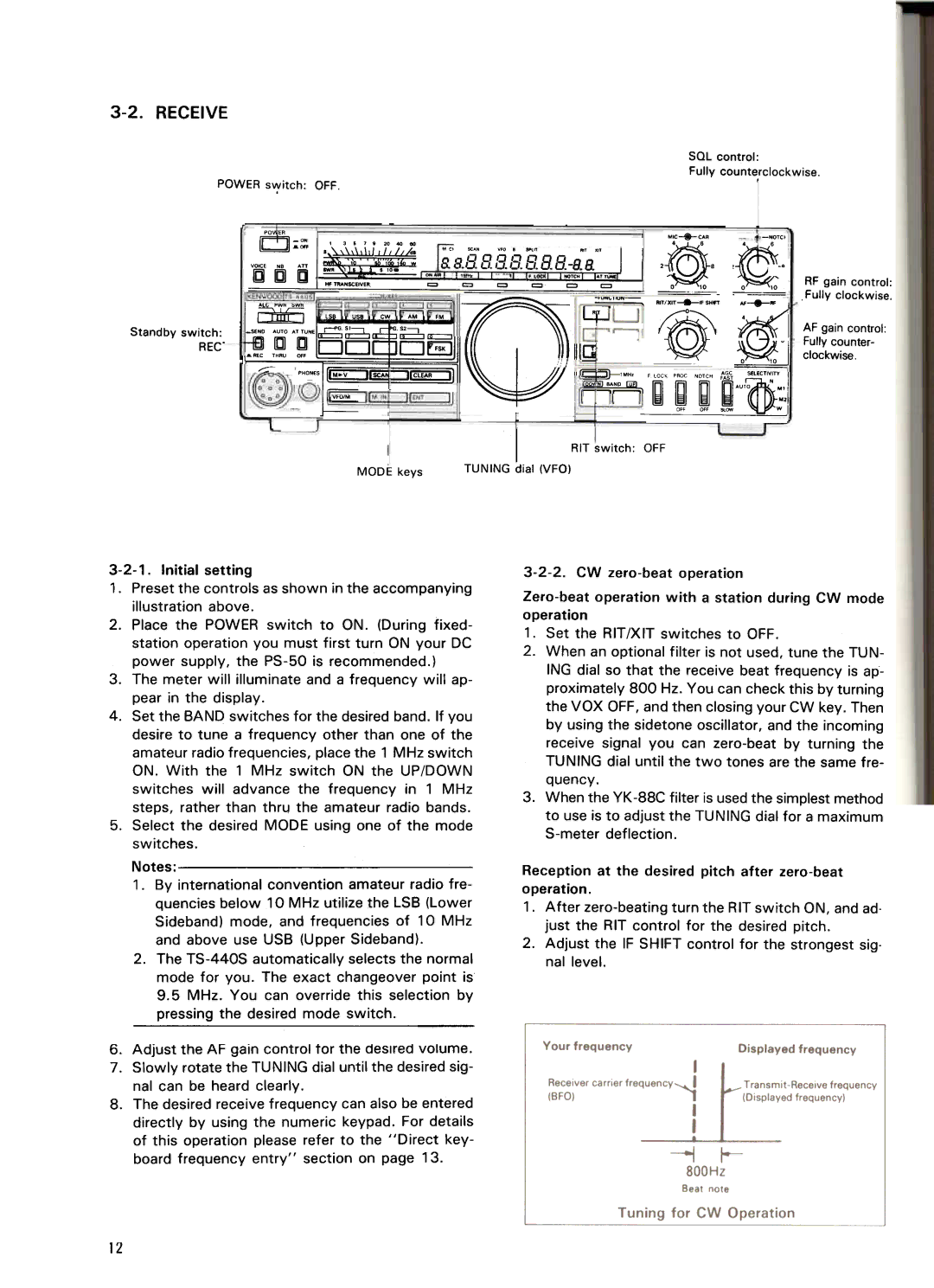
3-2. RECEIVE
SQL control:
Fully counte!clockwise.
POWER switch: OFF.
| ~ |
| ~... | ||||||||||
| va'~ B I ~~~~~~I' ,. ,., | ||||||||||||
| ~;;;;: |
|
|
|
|
|
|
|
|
|
|
| |
| ~ | ~ | = | ~"~ |
|
| , |
| |||||
|
|
| = |
| = I | 0 | |||||||
|
|
|
|
|
| , |
| ~ |
| Fully clockwise. | |||
|
|
|
|
|
|
| ~..- | ~ |
|
| |||
Standby switch: |
|
|
|
|
| ~ |
|
|
|
|
| AF gain control: | |
~ | ~ |
|
| IIIII~'~'li1~1@ |
|
| Fully counter- | ||||||
|
|
|
| II | |||||||||
REC. |
|
| ~or | clockwise. | |||||||||
|
|
|
|
|
|
|
|
|
|
|
| ||
|
| l ~ | I |
| II I |
|
|
|
| O~O |
|
| |
|
|
|
|
|
|
| AGOSE'£CT,""' | ||||||
MODE keys
I
TUNING dial (VFO)
RIT switch: OFF
1.Preset the controls as shown in the accompanying illustration above.
2.Place the POWER switch to ON. (During fixed- station operation you must first turn ON your DC power supply, the
3.The meter will illuminate and a frequency will ap- pear in the display.
4.Set the BAND switches for the desired band. If you desire to tune a frequency other than one of the amateur radio frequencies, place the 1 MHz switch ON. With the 1 MHz switch ON the UP/DOWN switches will advance the frequency in 1 MHz steps, rather than thru the amateur radio bands.
5.Select the desired MODE using one of the mode switches.
Notes:
1.By international convention amateur radio fre- quencies below .10 MHz utilize the LSB (Lower Sideband) mode, and frequencies of 10 MHz and above use USB (Upper Sideband).
2.The
6.Adjust the AF gain control tor the desired volume.
7.Slowly rotate the TUNING dial until the desired sig- nal can be heard clearly.
8.The desired receive frequency can also be entered directly by using the numeric keypad. For details of this operation please refer to the "Direct key- board frequency entry" section on page 13.
3-2-2. CW zero-beat operation
1.Set the RIT/XIT switches to OFF.
2.When an optional filter is not used, tune the TUN- ING dial so that the receive beat frequency is ap- proximately 800 Hz. You can check this by turning the VOX OFF, and then closing your CW key. Then by using the sidetone oscillator, and the incoming receive signal you can
quency.
3.When the
Reception at the desired pitch after
1.After
2.Adjust the IF SHIFT control for the strongest sig- nal level.
12
